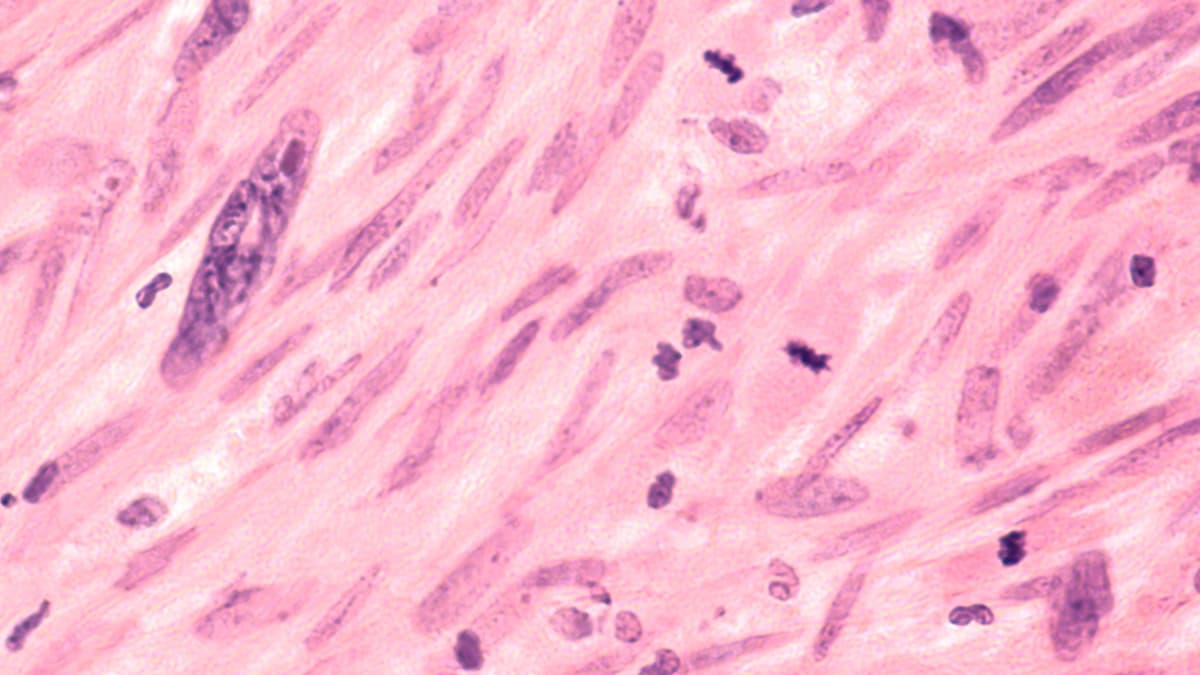FDA Gives Priority Review to Afami-Cel in Advanced Synovial Sarcoma
Data from the phase 2 SPEARHEAD-1 trial support the biologics license application for afami-cel as a treatment for patients with advanced synovial sarcoma.
The regulatory agency has set a Prescription Drug User Fee Action date of August 4, 2024, for its decision on approving afami-cel in the aforementioned population.

The FDA has granted priority review to a biologics license application (BLA) for the investigational T-cell therapy afamitresgene autoleucel (afami-cel) in the management of advanced synovial sarcoma, according to a press release from Adaptimmune Therapeutics.1
The regulatory agency has set a Prescription Drug User Fee Action date of August 4, 2024, for its decision on approving afami-cel in the aforementioned population.
“The FDA’s acceptance of the BLA submission brings us one step closer to redefining treatment for people with synovial sarcoma,” Adrian Rawcliffe, chief executive officer at Adaptimmune, said in the press release. “Our franchise has great potential and, if approved, we have the capabilities and the capital to launch afami-cel - the first engineered T-cell therapy on the market for a solid tumor cancer.”
Supporting data for the BLA came from the phase 2 SPEARHEAD-1 trial (NCT04044768) evaluating the safety, tolerability, and efficacy of afami-cel in patients with advanced synovial sarcoma or myxoid/round cell liposarcoma. According to findings presented at the 2023 Connective Tissue Oncology Society (CTOS) Annual Meeting, afami-cel produced an overall response rate (ORR) of approximately 39% and a median duration of response (DOR) of approximately 12 months in a heavily pretreated cohort of patients with advanced metastatic synovial sarcoma.2 Additionally, the median overall survival (OS) was approximately 17 months; the estimated 2-year OS rate for those with a response was 70%.
The safety profile of afami-cel in the SPEARHEAD-1 trial was consistent with prior reports of the agent. Cytokine release syndrome and reversible hematologic toxicities were the most frequently observed adverse effects.
“This is a transformational therapy for synovial sarcoma, and I know there is a groundswell of support to make this product widely available,” study investigator Brian Van Tine, MD, PhD, a professor of Medicine and Pediatrics at Washington University School of Medicine in St. Louis, said in a press release on these data.2 “The international effort to recruit eligible patients demonstrates the commitment of sarcoma centers to rapidly find [patients with] rare tumors.”
In the open-label SPEARHEAD-1 trial, patients received a single infusion of afami-cel at 1.0 x 109 to 10 x 109 T-cells. The trial’s primary end point was ORR based on RECIST v1.1 criteria. Secondary end points included best overall response, DOR, progression-free survival, OS, and safety.
Patients between the ages of 16 and 75 years with a diagnosis of advanced synovial sarcoma or myxoid liposarcoma or myxoid round cell liposarcoma were able to enroll on the trial. Additional eligibility criteria included having measurable disease prior to lymphodepletion per RECIST v1.1 guidelines, centrally confirmed MAGE-A4 expression in tumors, and an ECOG performance status of 0 or 1.
“Afami-cel targets MAGE-A4, and specifically was found to be quite promising in synovial sarcoma,” Sandra P. D’Angelo, MD, said in an interview with CancerNetwork®during Sarcoma Awareness Month 2023.“We’re optimistic that perhaps it’ll become a new standard of care for patients with synovial sarcoma.”
D’Angelo is a sarcoma oncologist and cellular therapist at Memorial Sloan Kettering Cancer Center.
References
- Adaptimmune announces U.S. FDA acceptance of biologics license application for afami-cel for the treatment of advanced synovial sarcoma with priority review. News release. Adaptimmune Therapeutics. January 31, 2024. Accessed February 1, 2024. http://tinyurl.com/3xr923n4
- Adaptimmune reports better outcomes for people with synovial sarcoma who received afami-cel compared to historical control. News release. Adaptimmune Therapeutics. October 31, 2023. Accessed February 1, 2024. http://tinyurl.com/kawc8673
Newsletter
Stay up to date on recent advances in the multidisciplinary approach to cancer.
Sarcoma Awareness Month 2023 with Brian Van Tine, MD, PhD
August 1st 2023Brian Van Tine, MD, PhD, speaks about several agents and combination regimens that are currently under investigation in the sarcoma space, and potential next steps in research including immunotherapies and vaccine-based treatments.